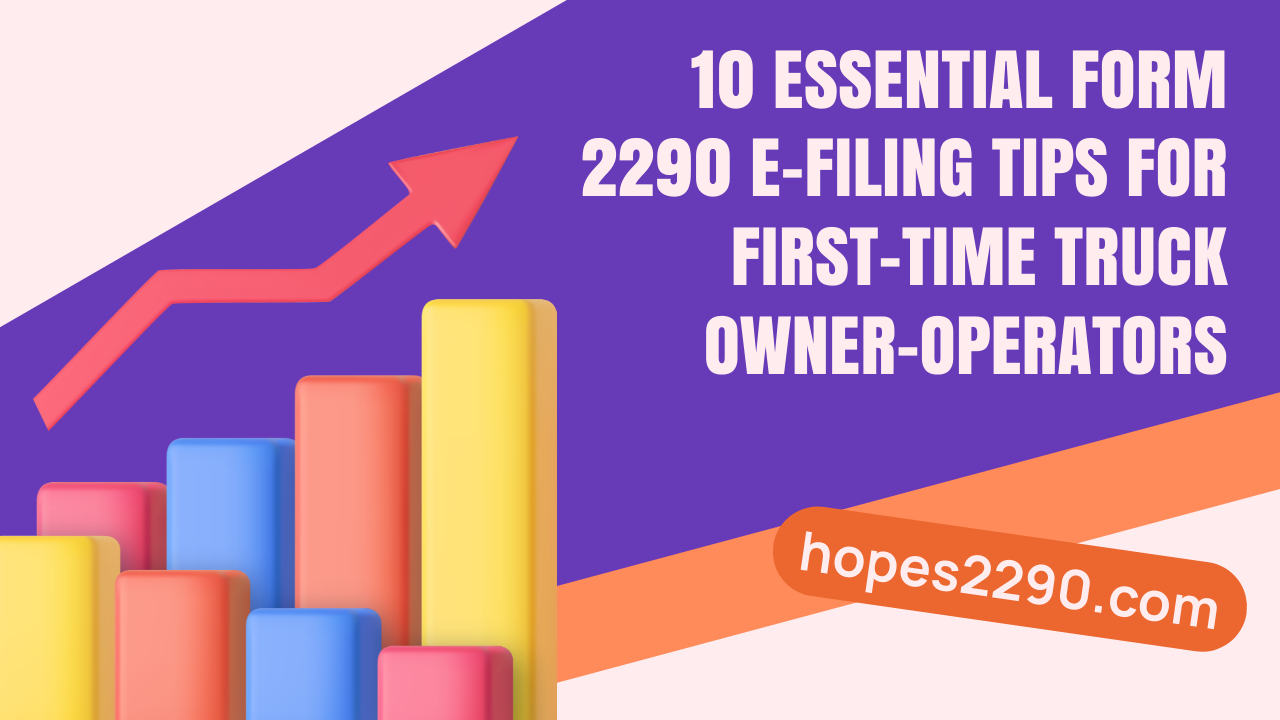Email support@hopes2290.com
TimingsMonday - Friday 6:00 am PT to 5:00 pm PT

If you are an owner operator who owns a truck for the first time, you must be thinking that filing Form 2290 is quite overwhelming. Well, with e-filing, it's easier, faster, and a lot more efficient. Here are ten must-do tips to guide you through Form 2290 e-filing.
Know Your Deadline
Form 2290 needs to be filed annually on or before August 31 or within one month after the vehicle has hit public highways. This means filing late has a penalty; mark this on your calendar.For starters, get EIN, VIN, and your gross weight category handy before proceeding. You will need it for accurate filling.
Get an EIN Well Before Time
If you do not already have an EIN, apply early. The IRS requires an EIN for Form 2290 and will not accept Social Security Numbers (SSNs).
Select a Reliable E-Filing Service
Selecting an IRS-approved e-filing service ensures data security, quick processing, and often, helpful customer support.
Check VINs Closely
Double-check your VIN to avoid filing errors. Mistakes here can lead to processing delays and potentially costly fines.
Compute Your Tax Accurately
The HVUT is computed based on the gross weight of your car and miles. So, take time to be accurate so you do not end up experiencing either overpayment or underpayment.
Pay Before Due Date
Late payments come with some penalties; therefore, when filing, make sure you pay the tax prior to the due date.
Apply for Bulk Filing of Several Trucks
You save time since you get to fill in Form 2290 for all trucks in one process.
Check the Flexibility of Payment
Most e-filing service providers offer payment options through EFTPS, debit or credit card.
Save Your Schedule 1
Make an electronic and printed copy of your stamped Schedule 1. This is proof of payment and is needed for renewing car registrations.
Follow these easy steps and you will be doing an easy e-filing with Form 2290 like a pro, and you can again focus on what matters: keeping the trucks rolling.